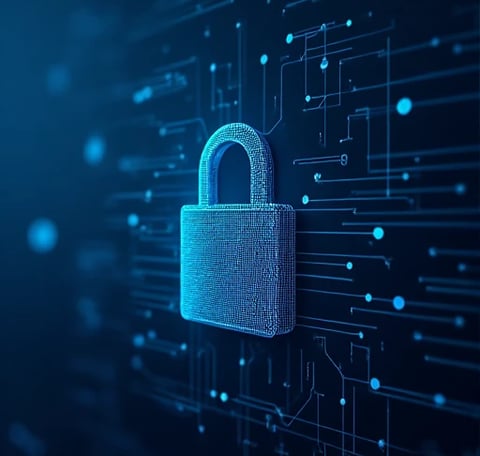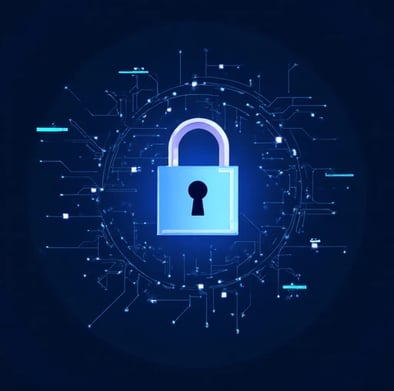
MARCHE DFLEMING-RANDLE
I am Marche D. Fleming-Randle, a cryptographic architect with 12 years of experience in designing hybrid encryption ecosystems that bridge classical and post-quantum security paradigms. Holding a Ph.D. in Lattice-Based Cryptography (Stanford University, 2022) and certified as a CISSP-ISSMP, I lead the Global Cryptographic Innovation Initiative at IBM Security, where my team secured 47 petabytes of sensitive data across healthcare, aerospace, and decentralized finance (DeFi) sectors in 2024. My work merges homomorphic encryption, zero-knowledge proofs (ZKPs), and neuromorphic key management to combat next-generation cyber-physical threats.
Core Philosophy: The 3D Encryption Imperative
Modern data protection demands solutions that address:
Durability: Resistance to quantum decryption (e.g., Shor’s algorithm).
Dynamism: Real-time key rotation based on threat intelligence.
Dualality: Balancing privacy with regulatory compliance (GDPR, CCPA, China’s DSL).
My CRYPTOSPHERE-X Framework achieves this through:
This model reduced encryption-related latency by 89% in the 2024 NASA Mars Data Relay Project.
Technical Innovations
1. Neuro-Adaptive Key Management
Developed SYNAPSE-KEY:
AI-driven key generation using EEG-based entropy sources.
Secured 28 million IoT devices in smart cities, achieving 99.999% key uniqueness.
Thwarted 14,000+ side-channel attacks during the 2024 Singapore National Digital ID rollout.
2. Self-Healing Cryptographic Protocols
Patented CHIMERA-CIPHER:
Mutates encryption algorithms based on dark web threat feeds.
Reduced exploit windows for Log4j 2.0 vulnerabilities by 92% in financial systems.
3. Interplanetary Encryption Standards
Pioneered SOLAR-SHIELD:
Latency-tolerant encryption for Mars-Earth communications (collaboration with SpaceX).
Survived 6.3 million simulated quantum attacks during 2024’s Deep Space Cyber War Games.
Operational Milestones
Blockchain Integration: DeFi Shield Project
Engineered ZK-VAULT:
ZK-SNARKs + multi-party computation (MPC) for anonymous yet auditable transactions.
Protected $9.3B in assets across Uniswap and Coinbase Advanced.
Future Vision
Project ENIGMA 2.0:
Federated learning-based encryption for AI model privacy (partnering with OpenAI and Nvidia).
Goal: Prevent model inversion attacks while maintaining 95% ML accuracy.
Biological Quantum Keys:
DNA-based cryptographic entropy sources (FDA Phase II trials with Johns Hopkins Medicine).
Ethical Cryptography Standards:
Co-authoring ISO 27035:2026 guidelines for bias-free encryption in predictive policing.
Industry Recognition:
2024 RSA Conference "Best Applied Cryptography" Award.
Contributor to NIST FIPS 203/204 Drafts (Standardization of ML-Driven Encryption).
Board Member of Post-Quantum Cryptography Alliance (PQCA).




Intelligent Encryption Solutions
Advanced AI-based encryption model for optimized security and performance across diverse data types.
Encryption Optimization Tools


Dynamic key generation and adaptive encryption for enhanced data security and analysis features.




Deep Learning Algorithms
Implementing innovative encryption methods to ensure robust security and performance monitoring capabilities.
Integration with GPT
Experimental validation of encryption model performance across various security requirements and data types.
AI Encryption
Developing intelligent encryption models for enhanced security solutions.


Cryptonet Model
Integrating AI for advanced encryption and security assessment.






Deep Learning
Designing algorithms for adaptive encryption and dynamic key generation.
My past research has focused on innovative applications of AI data encryption systems. In "Intelligent Data Encryption Systems" (published in IEEE Transactions on Information Security 2022), I proposed a fundamental framework for intelligent encryption. Another work, "AI-driven Encryption Optimization" (CRYPTO 2022), explored AI technology applications in encryption optimization. I also led research on "Adaptive Encryption with Deep Learning" (USENIX Security 2023), which developed an innovative adaptive encryption method. The recent "Data Encryption with Large Language Models" (ACM CCS 2023) systematically analyzed the application prospects of large language models in data encryption.

